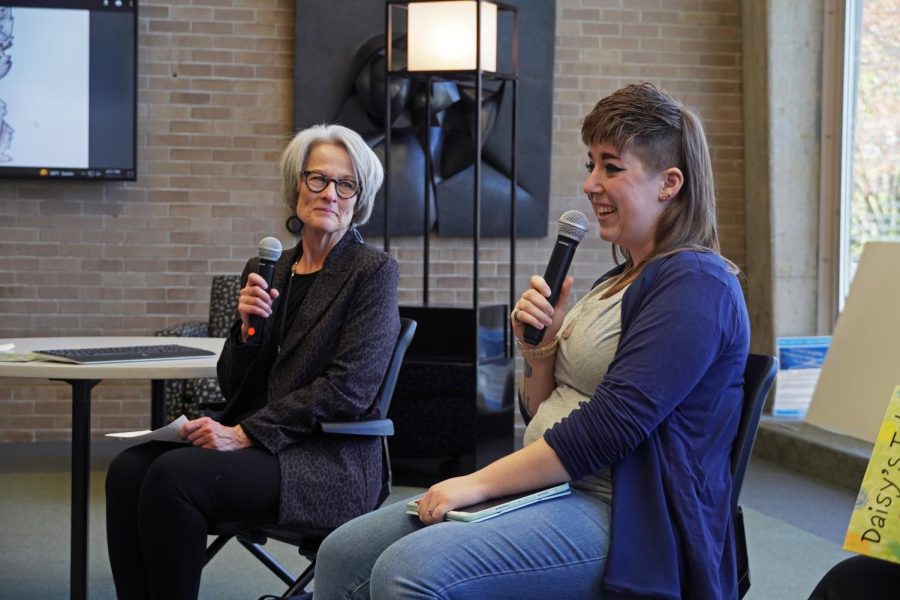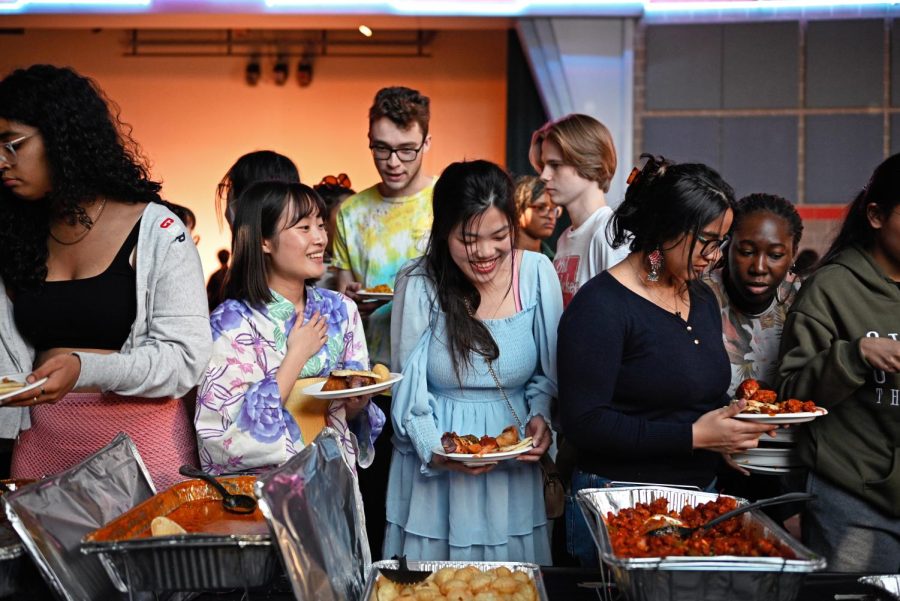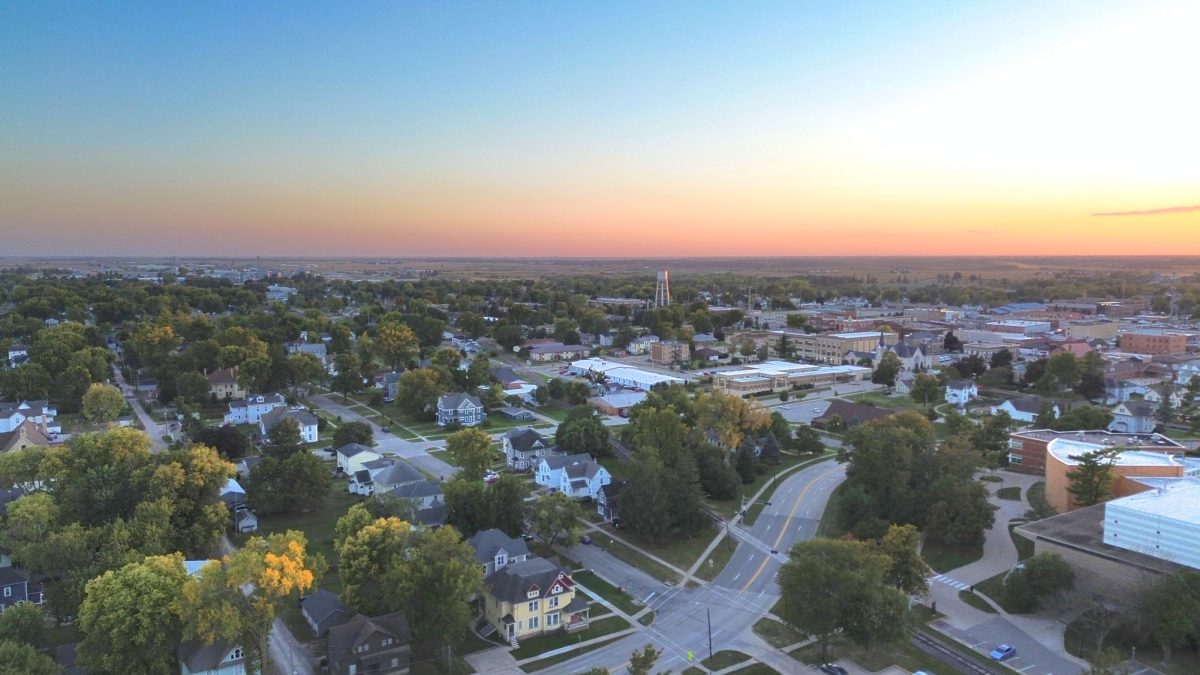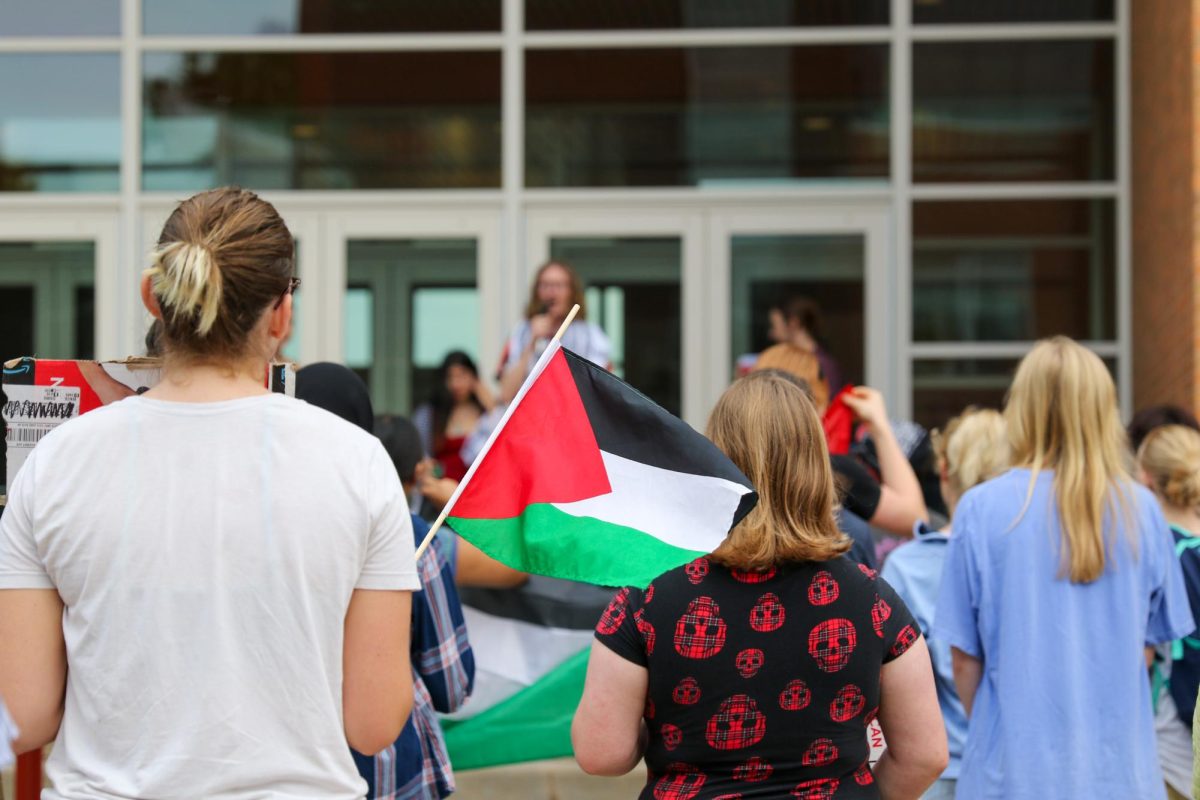SGA Vice President for Student Affairs (VPSA) Amelia Zoernig ’21 resigned on Friday, July 3, after she was criticized in a post on the Instagram account @gcbipoc for approving a jungle-themed Harris party in her capacity as All-Campus Events Chair last fall. That criticism identified the jungle theme as racist, and a growing number of students called for Zoernig, who is white, to step down following the initial post, dated June 28.
Zoernig officially submitted a letter of resignation to the SGA Cabinet on Friday, July 3. The letter was made public on July 5.
The SGA Constitution specifies that a special election should be held to replace Zoernig as VPSA. However, due to the ongoing revision of the Constitution as well as a lack of election infrastructure due to hiring issues, that probably won’t happen – SGA President Lana Katai ’21 said holding an election is “just not possible” at this time. That leaves the decision of who will replace Zoernig up to the SGA Cabinet for now.
Zoernig’s resignation comes as the U.S. faces a nationwide reckoning over systemic racism and as many Grinnell students accuse faculty, staff and students of not doing enough to confront anti-Blackness within the College.
“It just shouldn’t have happened,” said Katai, who was abroad at the time of the Harris’ approval. “As a Black woman, I heard that and I was like, ‘Oh, no, no, no. We don’t do that.’”
I think we should be focusing on who is in these positions and what fundamental oversight they have that permits for these things to happen. – Lana Katai
But Katai also said that focusing too much on the specifics of the incident “is not helping anyone in the long run.” Instead, students – white students in particular – should be focused on the systemic failings that allowed the event to be approved in the first place, she said.
“I think we should be focusing on who is in these positions and what fundamental oversight they have that permits for these things to happen,” said Katai. “The institution itself [both SGA and Grinnell College] is so deeply flawed that it is very often left to the students of color to do the work.”
Zoernig’s resignation was brought about by a post on the recently formed Amplify BIPOC Instagram account (@gcbipoc), created as a space for Grinnell BIPOC (Black, Indigenous, people of color) students to share personal experiences at the College. The page is run by an anonymous student and has over 500 followers.
The initial post about the incident recounted how the All-Campus Events Committee, chaired at the time by Zoernig, had approved the women’s tennis team’s plan to host a jungle-themed Harris party. The team’s budget proposal, presented by Ali Hickey and Abby Nielsen, both `21, included a pack of inflatable monkeys to be used as decorations.
Monkeys in particular have been used in racist rhetoric in the U.S. to portray Black people as inferior, and the media’s use of jungle tropes also has a racist history.
Raven McClendon ’22 submitted the June 28 Instagram post. She was a LaKeRoJe Senator in 2019 and the only Black student on the committee of three that approved the jungle theme. Zoernig and then-VPSA Saketan Anand `21 approved the event, and while McClendon initially voted with them for approval, she said she was uncomfortable with the theme throughout the process. Following discussions with other Black peers, she decided to tell Zoernig she was concerned the party was racist.
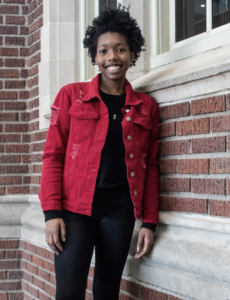
In response to McClendon’s concerns, Zoernig – in coordination with the women’s tennis team – removed the monkey decorations and changed the theme from Jungle Harris to Rainforest Rave. The Harris proceeded with the new rebranding. But McClendon says it wasn’t enough.
Instead, McClendon said the women’s tennis team shouldn’t have been “rewarded with an event.” Rather, the Harris should have been canceled or hosted by another group.
“They weren’t thinking of anyone other than themselves,” McClendon said of the women’s tennis team, accusing them of failing to consider how their event would impact Black students. “This is an all-campus event, and I do think you should be thinking about the entire campus.”
Katai also said that the event should not have gone forward. And in her resignation letter, Zoernig wrote that the “compromise” she instituted amounted to “whitewashing” the event rather than holding the women’s tennis team accountable.
Members of the women’s tennis team have since made personal apologies, and in email to The S&B they wrote that the team has “no business hosting public events” after proposing the jungle theme. They wrote that they are committed to educating themselves and listening to BIPOC voices, as well as “supporting anti-racist causes on campus and beyond.”
If you have caused another person harm and they tell you, ‘This is how you can fix that harm,’ the thing you can do is take their word for it. – Amelia Zoernig
In the post, McClendon also demanded that Zoernig resign. 17 students commented on McClendon’s post to ask that Zoernig step down as well. Later posts on @gcbipoc and other social media platforms also asked Zoernig to resign.
“If you have caused another person harm and they tell you, ‘This is how you can fix that harm,’ the thing you can do is take their word for it,” said Zoernig in an interview with The S&B. “I truly hope that my resignation is restorative and meaningful to the individuals that I caused harm.”
Katai agreed that resigning was the right thing for Zoernig to do.
But for McClendon, Zoernig’s resignation is just the beginning of her no-holds-barred approach to dismantling SGA, an organization she described in no uncertain terms as “anti-Black.” For her, it’s time to “scrap it and start over.”
“I think that we can have a student government that is uniquely Grinnell … instead of modeling our government off of a white man’s government that says we can’t talk a certain way and wants to police our tone,” she said.
McClendon referenced the use of Robert’s Rules of Order, parliamentary standards established in the 19th century to regulate deliberation within assemblies, as an example of tone policing within SGA. She said that the Rules exclude those who use vernacular English variants that have been traditionally considered “incorrect” by white institutional authorities.
The use of Robert’s Rules is just one example of many in which McClendon says SGA fails to be an inclusive space.
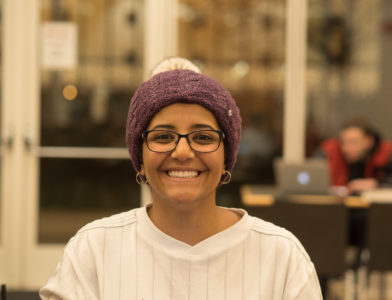
Katai agreed that SGA perpetuates anti-Blackness, saying she has experienced it herself. And she concurred that SGA needs to be reformed, noting that one “immediate change” that could be instituted is ensuring “there is literal representation of students in the elected leadership,” especially for international students who are “not participating with SGA in a way that is representative to them,” she said.
But while Katai said that she “absolutely” wants to see the overhaul of SGA, she also cautioned that it may be difficult to embark on large-scale change amid a pandemic. “I don’t know if in this pandemic that can happen in a way that doesn’t compromise student voices,” she said. “I still think that [SGA] has the capacity to streamline information that students need and to represent voices in conversations that need to happen.”
For McClendon, it’s that kind of hesitation that hinders change. “I will never say that the solution to change is pausing it. … Especially when the time is now. Yeah, there’s a pandemic, but what else the hell is going on? We see all these fucking protests happening during this pandemic. Life is not stopping for us. … We can do an overhaul. We really can.”
One thing that McClendon, Katai and Zoernig agree on is the need for white students to take point in confronting anti-Blackness on campus, rather than relying on students of color to do that work.
“I think it’s really high time that Grinnell College non-people of color wake up to the fact that they are all so complicit in the narratives that we love to analyze in class,” Katai said.






















































